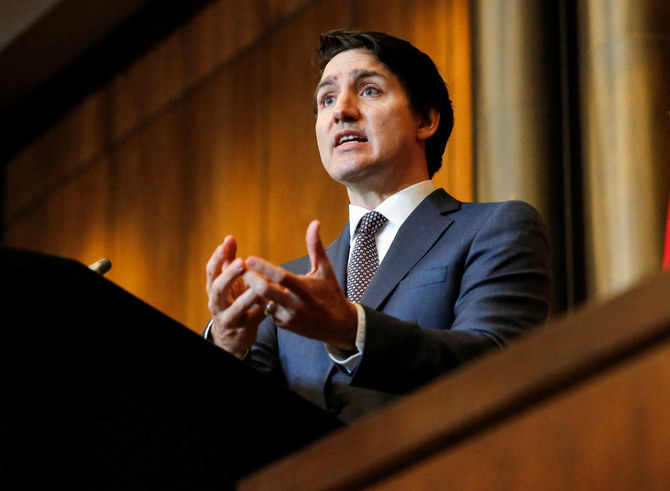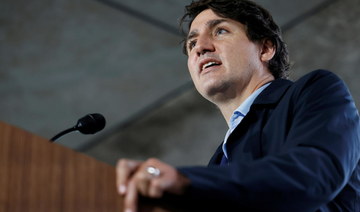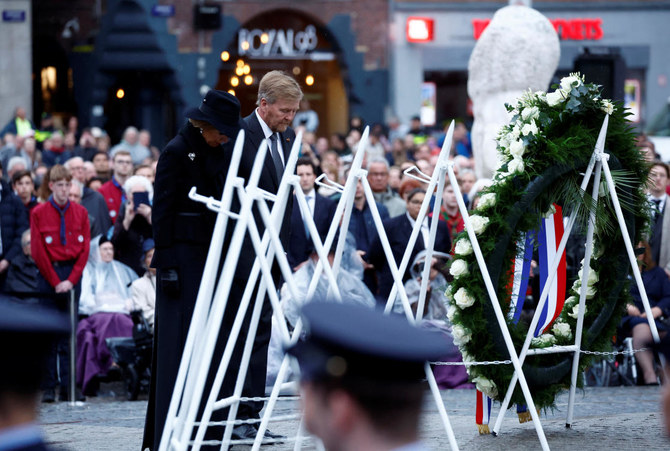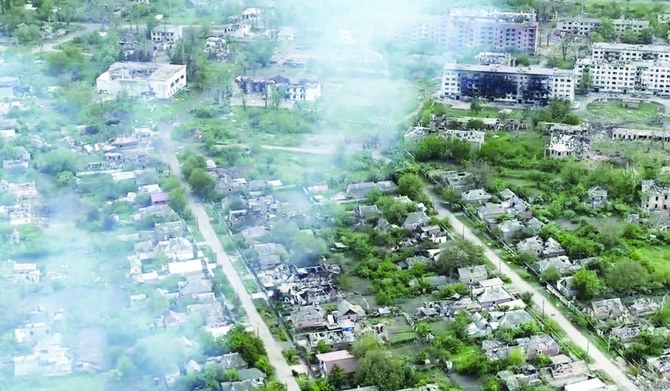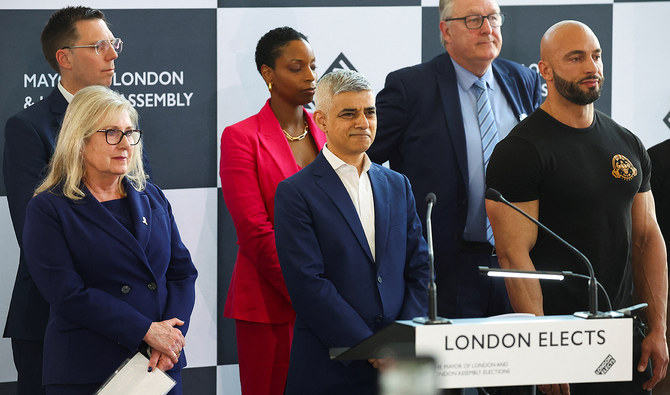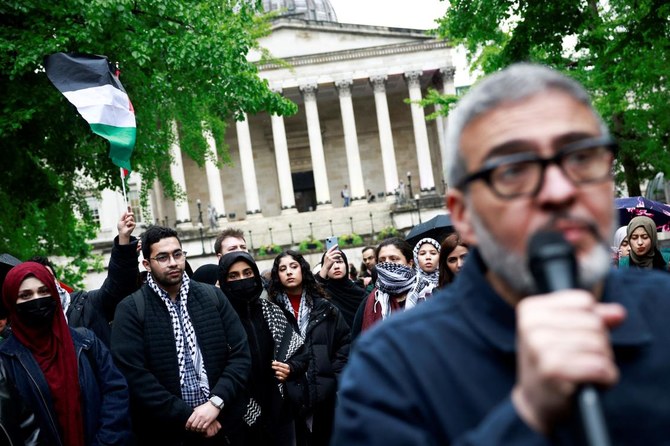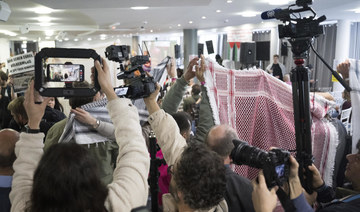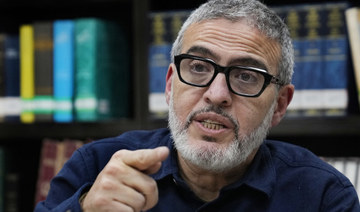MONTREAL: Eco warrior turned Environment Minister Steven Guilbeault, picked by Justin Trudeau five months ago to guide Canada’s climate policy, will soon face his first major test in deciding on a new offshore oil project.
Norwegian firm Equinor is seeking to develop oil discoveries in the Flemish Pass Basin, some 500 kilometers (310 miles) east of St. Johns, Newfoundland.
Its proposed Bay du Nord project promises to create thousands of jobs and generate Can$3.5 billion ($2.8 billion) in royalties for the Atlantic island province, rescuing its floundering economy.
But exploiting an estimated 300 million barrels of oil over 30 years would set back efforts to curb climate change.
Oil market turmoil caused by Moscow’s invasion of Ukraine and Western sanctions against the Russian energy sector could further complicate matters.
Guilbeault, a longtime activist who scaled Toronto’s CN Tower in 2001 to draw attention to climate change, is to announce a decision in the coming weeks.
Environmentalists say this will be a “real test” of his and Prime Minister Trudeau’s climate bona fides.
The Trudeau administration faces “a very big dilemma,” Pierre-Olivier Pineau, an energy policy expert at HEC Montreal business school, told AFP.
“If I had to bet, I think there is a slightly higher chance that he rejects the project,” he said, opining that the government needs to show itself to be taking real climate actions, especially after being thrashed in 2018 for salvaging construction of a major pipeline from the Alberta oil sands to the Pacific coast.
“If he rejects (Bay du Nord), this sends a message reinforcing Canada’s image of being a champion in the fight against climate change,” Pineau explained.
Equiterre, an environmental advocacy group co-created by Guilbeault in 1993 following the Earth Summit in Rio de Janeiro that produced the UN Framework Convention on Climate Change, said Ottawa must reject Bay du Nord.
“Canada is far from meeting its greenhouse gas reduction targets,” Equiterre analyst Emile Boisseau-Bouvier told AFP.
The Trudeau government last year enhanced its Paris Agreement target to reduce carbon emissions by 40-45 percent from 2005 levels by 2030. But it is still short of EU and US goals.
“It is not by betting on a moribund industry that we are going to solve the (climate) problem,” said Boisseau-Bouvier, explaining that “the next few weeks will be pivotal” for Canada, as it also prepares to unveil a plan to reach its emissions target.
Much-needed economic boost
Trudeau’s Liberals in the last election won six out of seven House of Commons seats in Newfoundland, out of a total 338 seats.
Those six — including former resources minister Seamus O’Regan, who is now labor minister — have lobbied fiercely for approval of the oil project, but have reportedly faced pushback within the Liberal caucus.
With the highest unemployment rate in the country, Newfoundland needs the economic boost Bay du Nord would provide — especially after reduced oil demand and prices related to pandemic restrictions on travel brought construction of another offshore oil project to a halt in 2020.
Ottawa had provided Newfoundland’s oil industry Can$320 million in aid back then.
Newfoundland Premier Andrew Furey said he has pressed Trudeau on “the importance of this project to our province,” calling it “critical” to the regional economy.
After a four-year environmental review, Ottawa has twice in recent months postponed announcing a decision on Bay du Nord.
“Folks are pretty down about the delay,” said Paul Barnes, Atlantic director for Canada’s Oil and Natural Gas Producers.
Canada’s environmental impact agency last August concluded Bay du Nord was “not likely to cause significant adverse environmental effects, taking into account the implementation of mitigation measures.”
Pineau acknowledged that intuitively approving the project would seem to go “against climate objectives,” but argued that rejecting it would see oil investments go elsewhere, “which is not necessarily any better for the climate.”
University of Waterloo professor Angela Carter, who researches ecological and political-economic risks of fossil fuel dependence, sees the issue simply.
“We cannot have it both ways,” she said. “Canada cannot meet its climate commitments and expand oil and gas production.”



